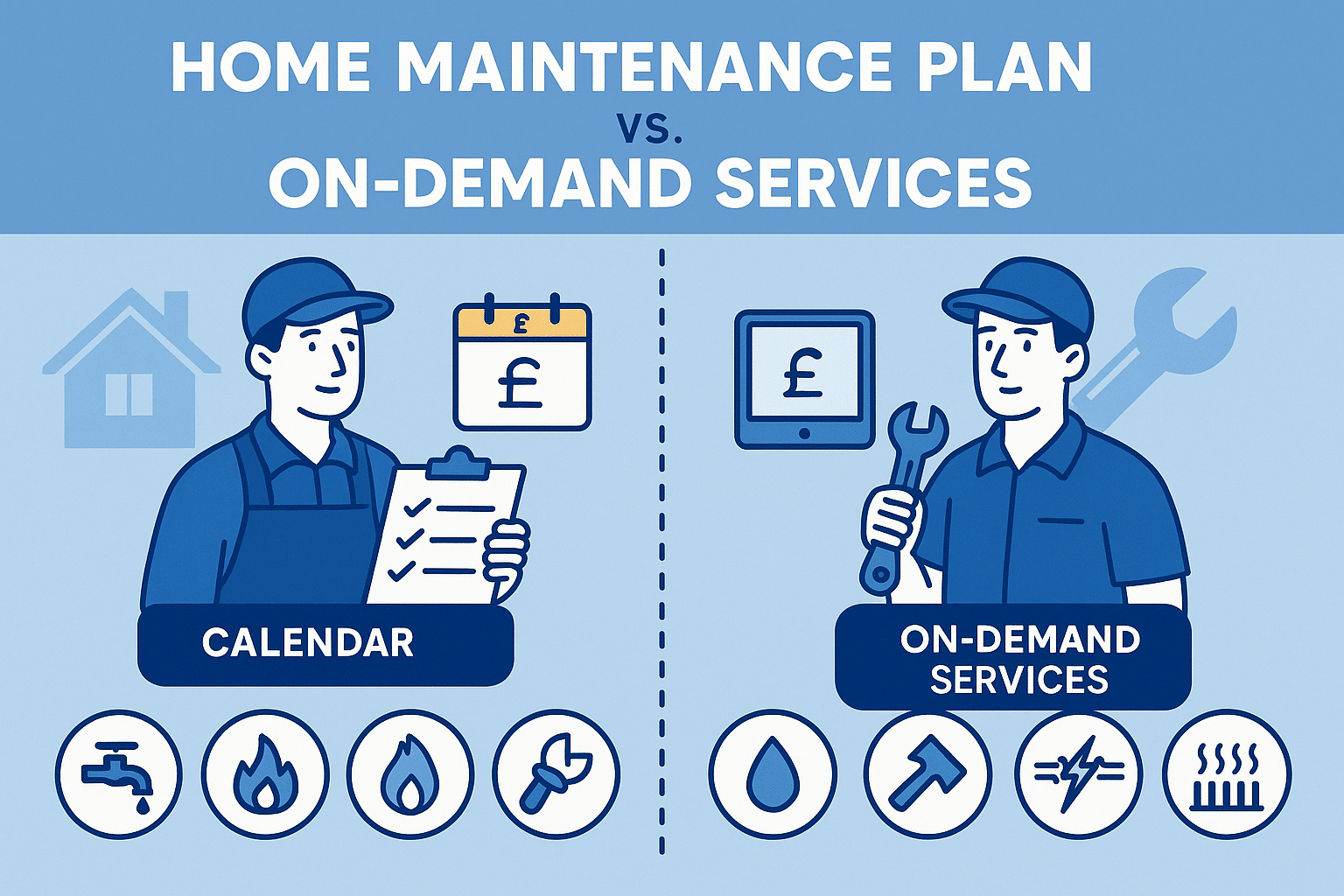 DIY Plumbing: Essential Skills for Home Maintenance
DIY Plumbing: Essential Skills for Home Maintenance
Tackling a DIY project around the house can be incredibly satisfying. There’s a real sense of accomplishment that comes from fixing something yourself. But when it comes to DIY plumbing, that sense of accomplishment can quickly turn into a sinking feeling as you watch water flood your kitchen floor.
While DIY plumbing can seem appealing, it’s important to understand the risks and know when to call in the experts. After all, a plumbing disaster can be expensive and time-consuming to fix. This blog post will explore DIY plumbing, empowering you to make informed decisions about your home’s plumbing systems.
Table of Contents:
- The Appeal and Potential Pitfalls of DIY Plumbing
- Essential DIY Plumbing Tips
- Importance of Regular Plumbing Maintenance
- Conclusion
The Appeal and Potential Pitfalls of DIY Plumbing
The desire to save money is a huge motivator for DIY plumbing. We get it – plumbing services aren’t cheap. YouTube and online tutorials make even the most complex repairs seem achievable. However, there’s a big difference between watching a pro and actually tackling a leaky pipe yourself.
DIY plumbing, while tempting, presents significant downsides. A seemingly straightforward repair can escalate into a major issue, potentially causing extensive water damage if not handled properly. Additionally, a poorly executed DIY plumbing job may void warranties on fixtures or appliances, leading to more financial burden down the line. Remember those copper pipes? Yeah, they can be tricky to work with.
When DIY Plumbing Can Be a Good Idea
Now, let’s be clear – DIY plumbing isn’t always a bad idea. Certain tasks, with the right tools and a good dose of caution, are well within the reach of a capable homeowner.
Think about it: Replacing a shower head doesn’t require the same level of expertise as, say, rerouting your entire drainage system. Basic tasks like unclogging a sink with a plunger or installing a new faucet can save you some money. The key here is knowing your limits and proceeding with caution.
When to Call in the Plumbing Professionals
While some plumbing tasks lend themselves to DIY, others should be left to the experts. Complex jobs often require specialised knowledge and tools most homeowners don’t possess.
Attempting these repairs without proper training can lead to costly mistakes and even safety hazards. Imagine dealing with a burst pipe at 2 a.m. Do you have the expertise to handle it on your own? Sometimes, calling a plumber, while not the most budget-friendly option, is the smartest move. If you’re facing an emergency, like a major leak, or dealing with hot water issues, it’s always best to call a qualified professional.
Essential DIY Plumbing Tips
For those plumbing tasks you feel confident tackling, a few crucial tips can make a world of difference. Preparation and knowledge are key to a successful DIY plumbing project. Let’s delve into some essential DIY plumbing tips to help you along the way.
Know Your Limits
DIY plumbing isn’t about proving your manhood or being a hero. It’s about taking care of your home safely and responsibly. It’s crucial to approach each task with a clear understanding of your abilities and limitations.
| Task | DIY Difficulty | Call a Plumber? |
|---|---|---|
| Unclogging a Sink | Easy | Only if the clog persists |
| Replacing a Shower Head | Easy | Nope, you got this. |
| Repairing a Leaky Faucet | Moderate | If you’re not comfortable with basic plumbing |
| Installing a Toilet | Moderate to Difficult | Unless you have some experience |
| Replacing a Water Heater | Difficult | Absolutely, especially if it involves gas lines |
It’s a good rule of thumb: If you find yourself second-guessing whether you can handle a particular plumbing task, it’s usually best to contact a qualified professional like All Services 4 U.
Turn Off the Water Supply
It may seem obvious, but turning off the water supply before starting any plumbing work is crucial. It’s easy to get caught up in the excitement of the project and forget this fundamental step.
This simple action can save you from a potential flood. Locating your main water shut-off valve and understanding how to operate it is essential knowledge for any homeowner.
Gather the Right Tools
DIY plumbing requires more than just a wrench and some duct tape. Invest in a proper set of tools, including pipe wrenches, adjustable wrenches, a basin wrench, a plunger, and a glass of water nearby for when you need a break. Having the right tools on hand will not only make the job easier, but will also ensure you complete the repair correctly and safely.
Consider investing in some power tools to help you with tougher jobs. But remember, safety first. Always wear appropriate safety gear, like gloves and eye protection when using power tools for DIY plumbing tasks.
Don’t be Afraid to Ask for Help
Even experienced DIY enthusiasts encounter challenges. There’s no shame in asking for help when needed. Whether it’s advice from a knowledgeable friend or calling in a plumber for guidance, seeking assistance can save you from potential frustration.
If you’re unsure about any aspect of a DIY plumbing project, don’t hesitate to reach out for professional help. Sometimes, a quick phone call to a local plumber can provide valuable insights and prevent a minor issue from becoming a major headache.
Importance of Regular Plumbing Maintenance
Now that you have a handle on when to tackle DIY plumbing and when to call in the pros, let’s talk about the importance of regular plumbing maintenance. This often-overlooked aspect of homeownership plays a vital role in preventing future issues.
By staying proactive and vigilant, you can save yourself from unexpected headaches. Just like a car needs regular servicing, your plumbing system benefits from routine checks and care.
Check for Leaks
Regularly inspect all visible pipes, faucets, and fixtures for any signs of leaks. Even a small drip can waste gallons of water over time, increasing your bills unnecessarily. A hot water leak will also drive up your energy costs.
Addressing leaks promptly, whether you fix them yourself or hire a plumber, is essential. If you’re unsure about how to fix a leak, it’s best to consult a professional to avoid causing further damage.
Inspect Water Heater
Consider a hot water supply, and if you don’t have one, periodically inspect your water heater for signs of corrosion or leaks. Also, don’t forget about boiler and central heating insurance – just in case. Flushing the tank annually can help remove sediment buildup, increasing its efficiency.
If you suspect an issue with your water heater, don’t hesitate to call a qualified plumber. A malfunctioning water heater can lead to a loss of hot water and potential safety hazards.
Conclusion
DIY plumbing, with its allure of cost savings and hands-on satisfaction, can be a valuable skill for homeowners. By being informed and understanding your limits, you can make smart decisions. You’ll successfully tackle some repairs while leaving the more complex tasks to licensed plumbers.
Remember to prioritise regular plumbing maintenance, and don’t hesitate to seek assistance from trusted professionals like those at All Services 4 U when needed. DIY plumbing doesn’t have to be a daunting task. With the right knowledge, tools, and a good dose of caution, you can handle many common plumbing issues, ensuring your home’s plumbing system remains in tip-top shape.


